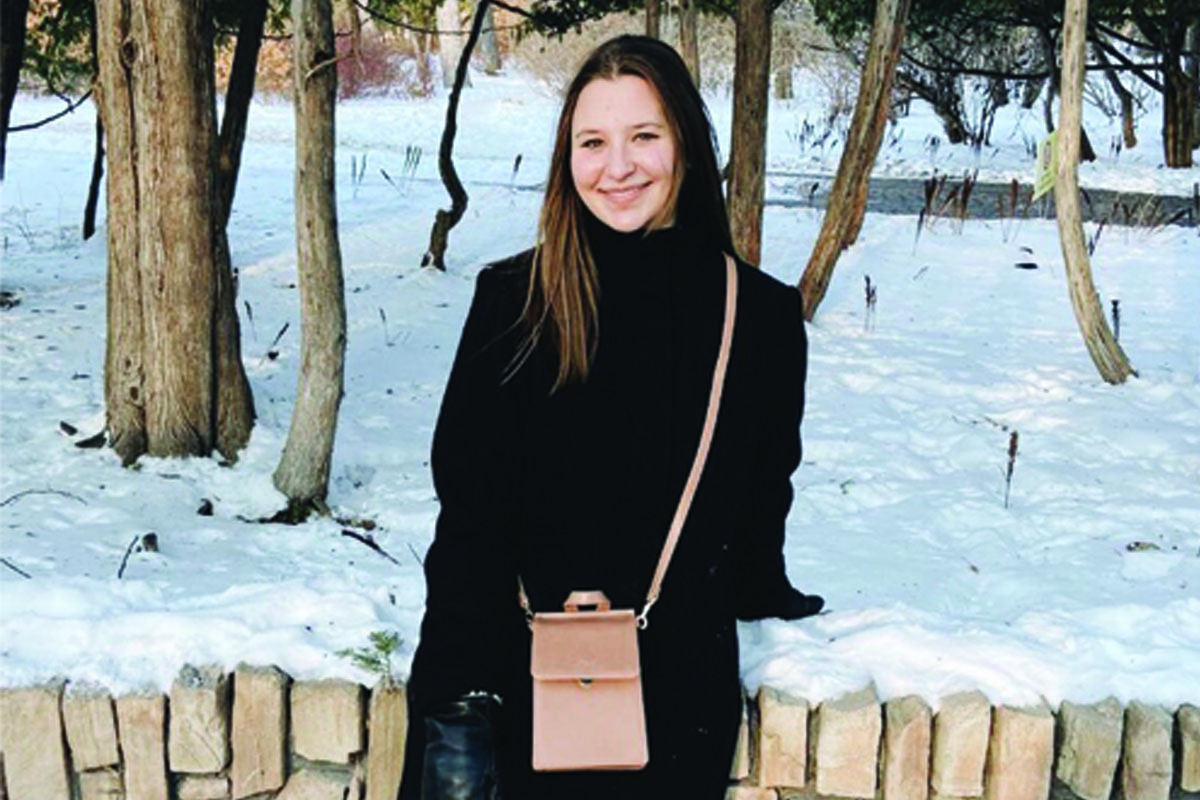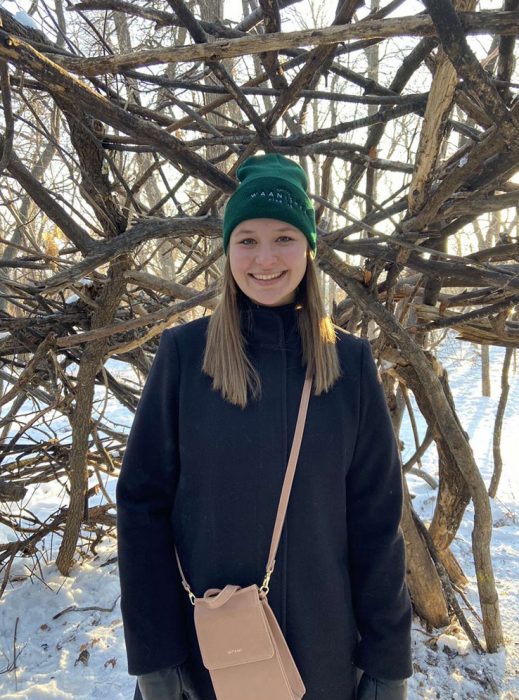
Taylor Tutkaluke outside on a winter day
Kinesiology student appreciates support and resources of Access Program
Join the Access community at UM
Taylor Tutkaluke always knew she wanted to go to university and make a difference. Her plan was to study Kinesiology and then pursue occupational therapy. But it wasn’t until her second year at the University of Manitoba when a work colleague suggested she apply to The Access Program.
“I wish I had Access in my first year,” says Tutkaluke, who grew up in North Winnipeg playing competitive ringette. Because Access provides smaller first year classes, her biology class would have had less than a dozen students rather than what seemed like hundreds, and it would have been much easier and less intimidating to approach the instructor and ask questions because she would have really gotten to know them.
“My parents didn’t go to university right out of high school. I didn’t know anyone in my classes. I felt isolated. I definitely recommend Access to anyone starting university. Access goes above and beyond to provide us with support. I can’t imagine my university experience without it.”
The Access Program at the University of Manitoba provides holistic support to Indigenous, newcomer, and other UM students, empowering them on their path to success.

Taylor Tutkaluke, Access Program student
“Everyone in Access is so welcoming. They are like my extended family, providing support and resources I didn’t know existed.”
Access staff let Tutkaluke know about scholarships and financial support she could apply for, lessening her financial burden and obligation to work while she studied. The counsellors are always there for her, ready to listen. “I always feel much more supported, bouncing things off another unbiased person. That’s so crucial.”
Tutkaluke was also eager to join Access in order to connect to her Indigenous culture.
“I grew up with the other side of my culture. My dad is Métis and Ukrainian. My mom is the daughter of immigrants, Croatian and Slovenian. I grew up with my Slovenian side. I had no formal education on my Indigenous side. But with Access, I learned different perspectives I hadn’t heard before. They have helped me tremendously to better understand myself and areas of my identity, and to better understand Indigenous people. It’s so crucial to understand the background of people around us.”
She began attending Access cultural workshops, made her own medicine bag, listened to the wisdom of Unkan (Grandfather) Wanbdi, and found herself newly immersed in her culture. Access also connected her to the greater Métis community on the UM campus. As a result, she has served on the Métis University Students’ Association and as Indigenous representative on the Faculty of Kinesiology student council.
“Thanks to Access, I found the opportunities and the confidence to get involved.”
Tutkaluke says her biggest challenge is time management. Because she continues to work and actively volunteer in her community while she studies, finding the right balance and way to schedule her time is important. Access also helps with that.
“The biggest thing for me is being surrounded by Indigenous people, successful people, hearing their stories. This is such an empowering environment. Everyone is going through their own struggles, going at their own pace. I learned that here.”
Among the cultural practices she explored, Tutkaluke has taken the sharing circle with her to start a BIPOC (Black Indigenous People of Colour) sharing circle in the Faculty of Kinesiology and Recreation Management, with fellow Access student Antonina Kandiurin.
“There are so many things to take with you. All shape you into a better version of yourself.”
Now Tutkaluke encourages other Indigenous students to start their university studies with the Access Program.
Students who plan to start their studies at the University of Manitoba this fall should apply to the Access Program by May 1.






